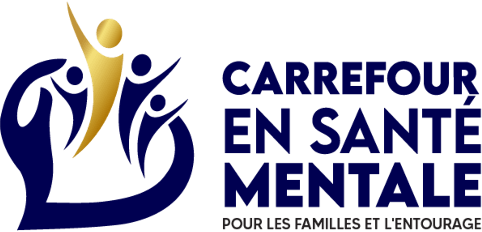Youth Project
For the well-being of 12–29-year-olds
The Aider sans Filtre Project creates favorable conditions for the well-being of young people aged 12 to 29 who are close to someone living with a mental health issue. It’s an initiative for youth and with youth.
Mission and Mandate
The Aider sans Filtre project is an initiative of CAP santé mentale, a provincial (Québec) non-profit community organization that brings together more than fifty associations. The mission of Aider sans Filtre is to promote and raise awareness around mental health, provide services tailored to the needs of young people, co-develop a youth intervention approach with the member associations of CAP santé mentale, and mobilize and involve regional stakeholders.
History
Aligned with the new 2022–2026 Interministerial Mental Health Action Plan, CAP santé mentale was mandated by the Ministry of Health and Social Services to implement the Aider sans Filtre project: for youth, by youth. (Mental Health Action Plan 2015–2020, Government of Québec, 2015, p.20). A budget of 7.5 million dollars over five years was allocated to CAP santé mentale and its member associations to carry out the project, including 1.7 million from L’APPUI for caregivers. In addition, several partners have joined the project, such as:
Awareness and Support Agents
The awareness and support agents are between 18 and 29 years old. They receive training to provide support to young mental health caregivers and are responsible for the awareness component in various settings (workshops, toolkits, meetings, etc.). There are approximately 35 awareness agents across the province working within the member associations of CAP santé mentale. These agents also recruit young people who wish to get involved as peer monitors.
Research Project
In 2021–2022, APAMM-RS (now CSMFE) actively agreed to participate in a research project with the support of co-applicants and partners collaborating with the Équipe de recherche et d’action en santé mentale et culture (ÉRASME).
Our interest in taking part in this initiative stems from a long-standing societal observation: the services provided to a person with a mental health issue are segmented by sectors, creating silos that deepen over time. So why not try to break them down by teaming up with various partners in a research project aimed at studying and experimenting with innovative, concrete, and realistic solutions? That is our current objective.
And what better way to reduce these silos than by considering an alternative such as Open Dialogue, an approach developed in the 1980s in Finland that has proven effective, especially in crisis intervention — a key focus of our new Family Crisis Intervention project. The innovative aspect of this practice lies in the collaboration between the person in distress, their family, and their mental health support team. This approach slows down the fast pace of treatment, encourages us to take the necessary time, and truly supports human well-being!
Following the award of a research grant from the Social Sciences and Humanities Research Council of Canada (SSHRC) for this project titled "Alliance de recherche et d’action Alternatives inclusives en santé mentale" (Alliance for Inclusive Alternatives in Mental Health Research and Action), we are now embarking on a five-year research journey — a major success in itself!
The team includes, among others, provincial groups from the alternative mental health movement, such as the Regroupement des ressources alternatives en santé mentale du Québec (RRASMQ), the Mouvement des jeunes en santé mentale (MJSM), the Association des groupes d’accompagnement et d’intervention en défense des droits en santé mentale du Québec (AGIDD-SMQ), CAP (formerly the Réseau Avant de Craquer), and the Table de concertation des organismes au service des personnes réfugiées et immigrantes du Québec (TCRI).
To tackle the challenges of developing inclusive alternatives, it is essential to involve family associations in studying the barriers that hinder active collaboration of families and close ones in interventions. The group of partners includes key actors in Quebec whose actions have impacts…
- on the local level, particularly in the Greater Montreal area: Prise II, Action Autonomie, Carrefour en santé mentale pour les familles et l’entourage, and the alternative crisis center L’Autre-Maison;
- on the provincial level: RRASMQ, MJSM, RAC, and TCRI;
- on the international level through their participation in the International Observatory of Alternative Practices involving universities in Canada, Brazil, and Spain.
As part of this major collaborative project, CSMFE will work toward implementing and experimenting with inclusive alternatives. Stay tuned for the changes that will unfold in the coming years.
